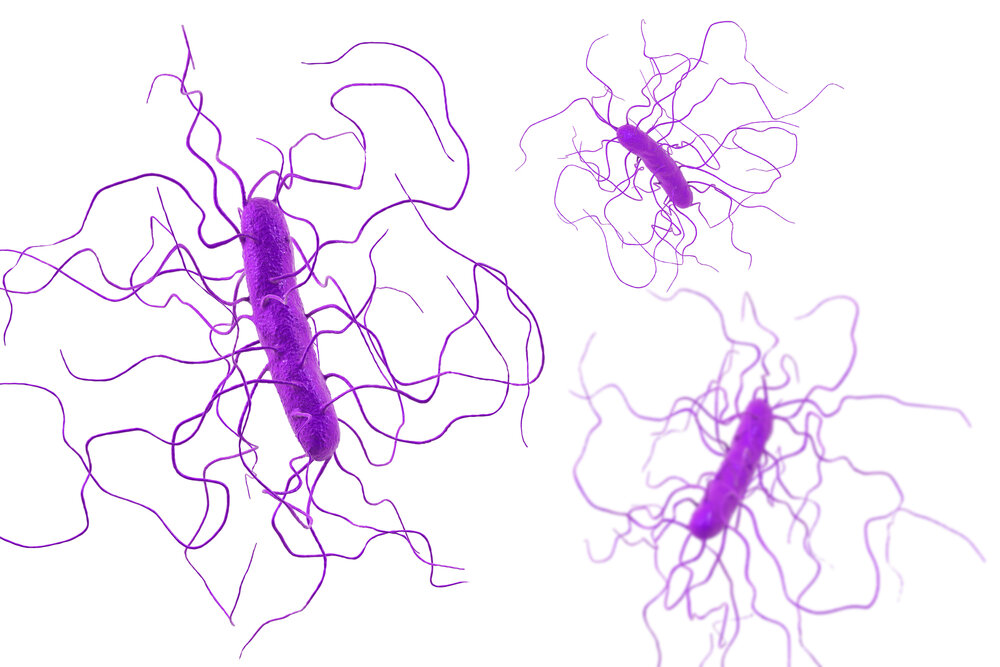C.Diff Bacteria Problems and Treatment
C. Clostridium difficile (Clostridium difficile) is an infection that should be discussed more frequently than it is despite infecting half a million Americans every year. When C. Diff bacteria is easily available in our gut and it keeps harmful bacteria away. C. diff spores can be found in our environment through the air we breathe, or even the clothes on our back or the food we eat. Usually that's how we end up with C. Diff in our guts.
However, conditions sometimes occur in which C arises. In the intestine, diff bacteria can multiply. This most often happens in someone who takes antibiotics because while antibiotics are used to combat an infection, some of the healthy bacteria in our intestines can also be killed.
Regrettably, C. Diff bacteria are resistant to many types of antibiotics, allowing it to flourish freely and rapidly multiply within the intestine. These bacteria can also generate toxins, especially in bigger amounts. Usually it's the toxins themselves that cause symptoms like diarrhea, cramps of the stomach, nausea, and fever you need to consult the best gastroenterologist in OKC.
C. Infections with differences may vary from mild to severe. Patients may relate their symptoms to an infection in the stomach (also known as gastroenteritis) in milder instances. These symptoms can be mild and self-limiting, lasting from a few days to several weeks anywhere. Usually, there is no need for medication or therapy to treat the infection.
Those with serious diarrhea, blood in the stool, serious abdominal pain, fever, and dehydration should seek the best gastroenterologist in OKC at the earliest opportunity. Although these symptoms may indicate several distinct gastrointestinal problems, if you think you may have a C. It's essential to seek instant medical therapy for diff infection.
Who Are at Risk?
Older adults are at greatest danger in health care facilities, particularly if they take antibiotics. That's because thousands of distinct kinds of bacteria are found in the human body— some good, some bad. If enough healthy bacteria are killed by the antibiotics, the ones that cause C. Diff might get unchecked and make you ill.
C is also developed by a growing amount of younger individuals, differential infections, even without antibiotics or hospitalization. After exposure to the bacteria, failure to wash your hands carefully may lead to infection.
You have greater chances of having C as well. Differentiate if you are dealing with a condition such as colorectal cancer, inflammatory intestinal illness, or a weakened immune system induced by cancer treatment or other health problems.
What Problems Can Cause?
If you have a C. Diff infection is not handled rapidly, because of serious diarrhea you may become dehydrated. This fluid loss may also influence blood pressure, the function of the kidney, and general health.
A C. Differential infection may also lead to toxic perforation of the megacolon or intestine, although this is rare.
Your colon dilates with toxic megacolon and is unable to release gas or stool. This may cause it to swell and break. You might die without emergency surgery.
Bowel perforation is a hole that enables hazardous bacteria to escape in your large intestines. It can lead to peritonitis, a hazardous infection.
Treatment
Your infection may have been caused by antibiotics, but some of these drug kinds target C. diff. Metronidazole, vancomycin and fidaxomicin are included.
Talk to your physician about these antibiotics ' side impacts.
If your intestines have been damaged, you may need surgery to remove the regions impacted.
Occasionally, A C. Diff infection may return. Doctors sometimes suggest therapy with healthy bacteria to assist repopulate the colon. It is often performed by using a machine called a colonoscope to place the stool of another person in your colon. (Sometimes it's also done on a nasogastric route. Donors are screened carefully to ensure that they don't go through diseases or parasites.
Contact the Digestive Disease Specialists Inc. for the best gastroenterologist in OKC.
**Disclaimer: This blog content does not offer a doctor's advice and creates no relationship between any patient and care provider.


